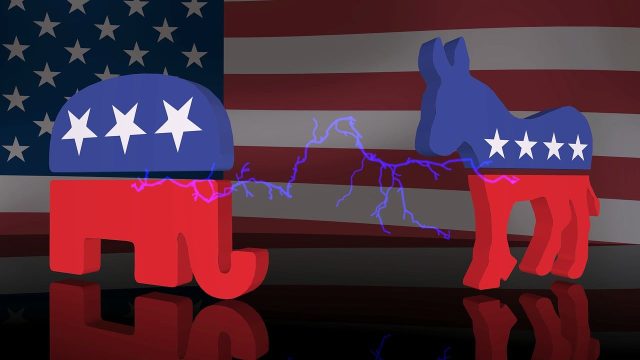
The perceived importance for US citizens of the issues addressed by Donald Trump during his election campaign is certainly proven. Especially since the majority of voters have decided that it is the tycoon who will lead the United States and put his approach, steeped in pragmatism, at the service of precisely those basic needs that make up the concept of ‘Make America great again’. On the opposite side, Democratic candidate Kamala Harris has put major civilisational battles and important ethical issues on the table, attempting to take them away from the internal Republican debate by ultimately claiming that interest in these issues only comes from the Dem camp. Nothing could be more incoherent and inconsistent, especially if we put these two approaches to the test of facts and the ballot box.
Election campaigns to the real-world test
But what moves the citizens’ vote? This is a difficult question to answer, both in the US and here in old Europe, but one on which campaigns and elections are often played out. A candidate’s political career, as well as the direction of a country for the coming years, is played out on the right perception of the electorate’s interest. From this point of view, the Democratic camp in the United States has decided for 2024 to focus on an electoral campaign strongly imbued with ethical issues and the rights of groups and minorities. This is an important choice, but that – let us remember – does not describe a unique interest in these issues; these are topics that are also debated in the Republican camp, however, in this election round, have not been placed at the center of the playing field. Recognition of certain rights and issues on the one hand, versus the Tycoon’s pragmatism on the other, with speeches on taxes, security, immigration, inflation, investment and foreign policy. In the context of the great spaces between the two coasts, of the rural and small-town America, the big ethical issues must necessarily give way to debates about jobs, the welfare state, or the feeling of fear and insecurity perceived by many Americans. One issue that has been clear to Trump and his team is that when one does not make ends meet, attention to the big ethical issues diminishes. When the average US voter went to the polls, they made their choice by voting for those who promised to keep taxes at an acceptable level, to increase the level of security (internal and external) and to protect citizens’ savings, property and – on this Trump is an example – entrepreneurial enterprise.
Cross-cutting issues must not be divisive
Choosing to focus the campaign on one or the other path in this case decreed Trump’s victory. This is not to say that these rights and issues should be set aside, far from it: they become cross-cutting elements that will still have to be addressed in the course of the legislature, but they aren’t (in this case) the central element of contention. The mass of American citizens is not opposed per se to the recognition of rights – especially personal rights. The mass is not racist and is not homophobic. It is precisely for this reason that combating these distortions does not become an objective of government in the tycoon’s campaign, because these issues are considered already established and transversally, between Republicans and Democrats, will be dealt with. In this case, it is a question of common sense and electoral practicality. Issues of this kind create contrasts and debates. They are not a useful subject at this time if the goal is to reach the election. What do work, however, are issues that aim to reduce tensions within society. Security, for example, but also the fight against inflation through wage protection, as well as an attempt to progressively lower taxes. It is these elements that simplified Trump’s speech, handing him the ballot box and the election to the White House.



 Subscribe
Subscribe